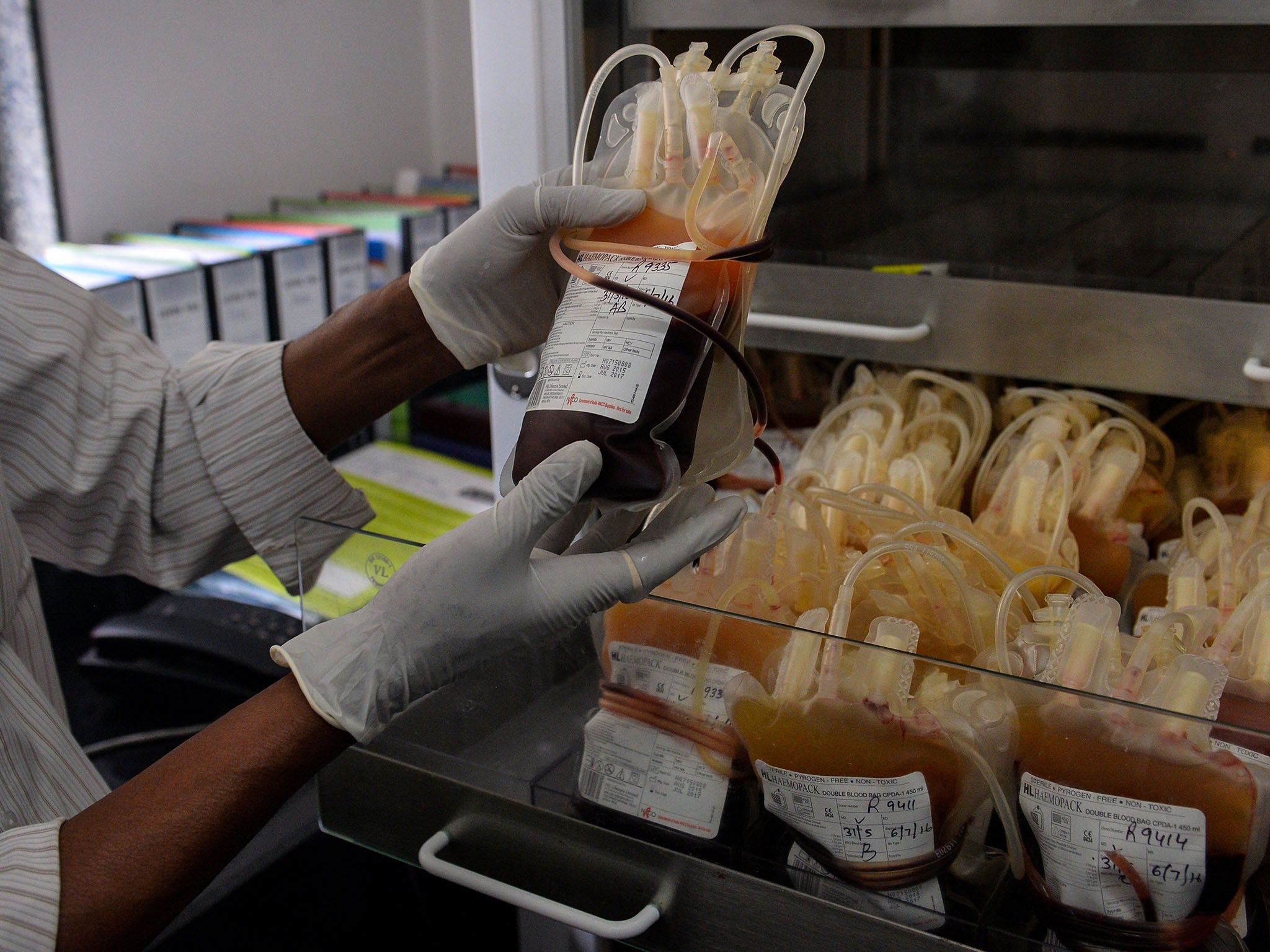Contaminated blood scandal: Victims win right to seek damages after thousands infected in 1970s and 80s
Comes after Downing Street said it would launch inquiry into imported transfusions

Your support helps us to tell the story
From reproductive rights to climate change to Big Tech, The Independent is on the ground when the story is developing. Whether it's investigating the financials of Elon Musk's pro-Trump PAC or producing our latest documentary, 'The A Word', which shines a light on the American women fighting for reproductive rights, we know how important it is to parse out the facts from the messaging.
At such a critical moment in US history, we need reporters on the ground. Your donation allows us to keep sending journalists to speak to both sides of the story.
The Independent is trusted by Americans across the entire political spectrum. And unlike many other quality news outlets, we choose not to lock Americans out of our reporting and analysis with paywalls. We believe quality journalism should be available to everyone, paid for by those who can afford it.
Your support makes all the difference.Victims of the contaminated blood scandal in the 1970s and 80s have won the right to launch a High Court action for damages.
A High Court official said it was “appropriate” to immediately issue a group litigation order allowing a potential 500 claimants – surviving victims of contamination and the families of the deceased – to join together to claim compensation.
The official, Senior Master Fontaine, made the order despite opposition from lawyers acting for the Department of Health who argued the application was “premature”.
The case concerns imported blood-clotting products derived from blood plasma which caused haemophiliacs and others to be infected with HIV and hepatitis, and has so far led to the deaths of at least 2,400 NHS patients.
Earlier this year Theresa May and Jeremy Hunt, the Health Secretary, promised a “wide-ranging” public inquiry into the scandal.
The Independent has contacted the Department of Health for comment.
The claimants allege that the DoH failed in its duty to take reasonable care to prevent injury or loss to NHS patients when contaminated blood products manufactured from blood donated “from unsafe sources”, mainly in the USA, were imported into the UK, causing a large number of haemophiliacs to be infected with Hepatitis C and HIV.
In the US, prisoners and people who were addicted to drugs were among those paid to give their blood to meet the rising demand for commercial blood products.
Their contaminated donations were mixed in with those of others.
In the lead case of Jason Evans, it is alleged the Health Secretary failed to provide “prompt and timely” notification to the patient about the risk of infection.
Other allegations include a failure to promptly notify infected claimants that they had become infected.
Master Fontaine was told more than 4,500 people contracted Hepatitis C and/or HIV in the 1970s and 80s.
Steven Snowden QC, appearing for the claimants, told the court it had recently come to light that information and documents which could have helped the victims and families in cases brought earlier had not been disclosed.
In the light of that lack of disclosure, argued Mr Snowden, it would be “unconscionable” for the Department of Health to rely on earlier settlement agreements and undertakings given by families to prevent them now pursuing further litigation.
The ruling on Tuesday follows an announcement by the Prime Minister in July that a public inquiry is to be held into what she described as “an appalling tragedy which should simply never have happened”.
Des Collins, of Watford-based law firm Collins Solicitors, which won the group litigation order, said: “The recent announcement of a public inquiry into these matters has at last indicated some willingness on the part of Government to address the claimant’s concerns.
“Against this background it is regrettable that the Secretary of State (for health) has not chosen to do so in these civil proceedings.”
Additional reporting by agencies
Join our commenting forum
Join thought-provoking conversations, follow other Independent readers and see their replies
Comments